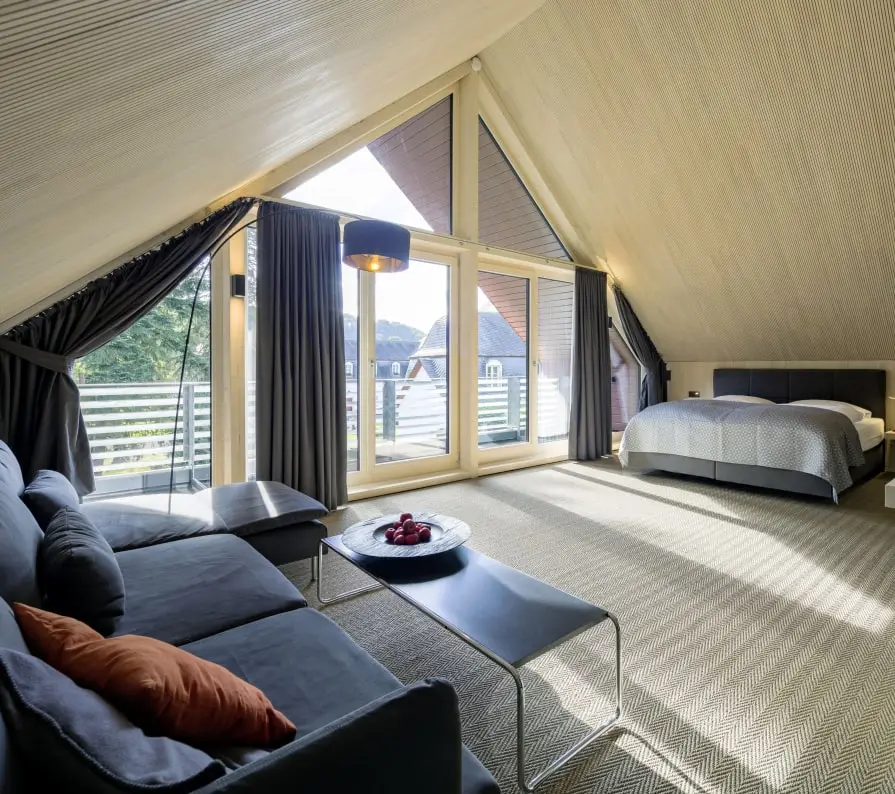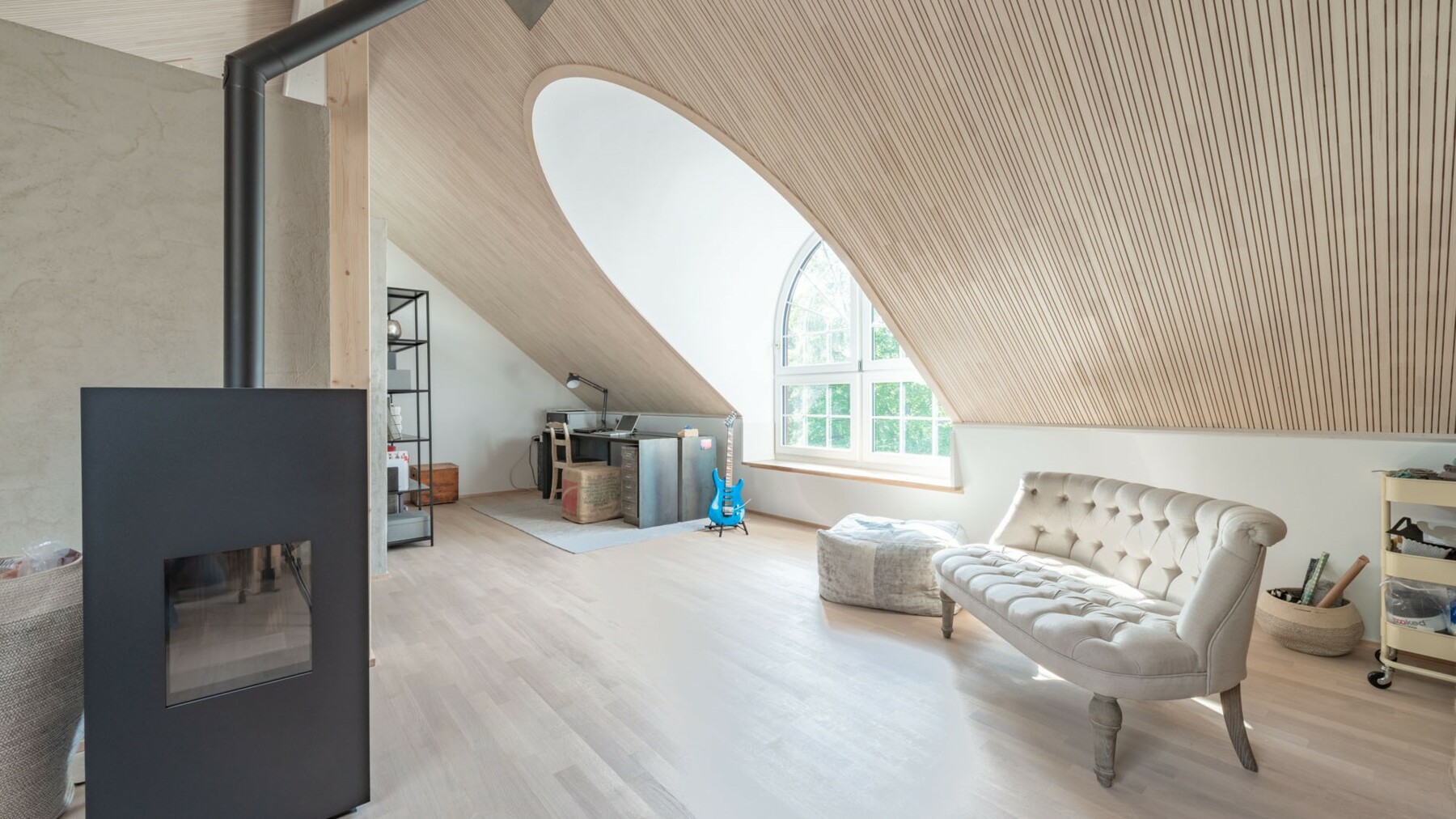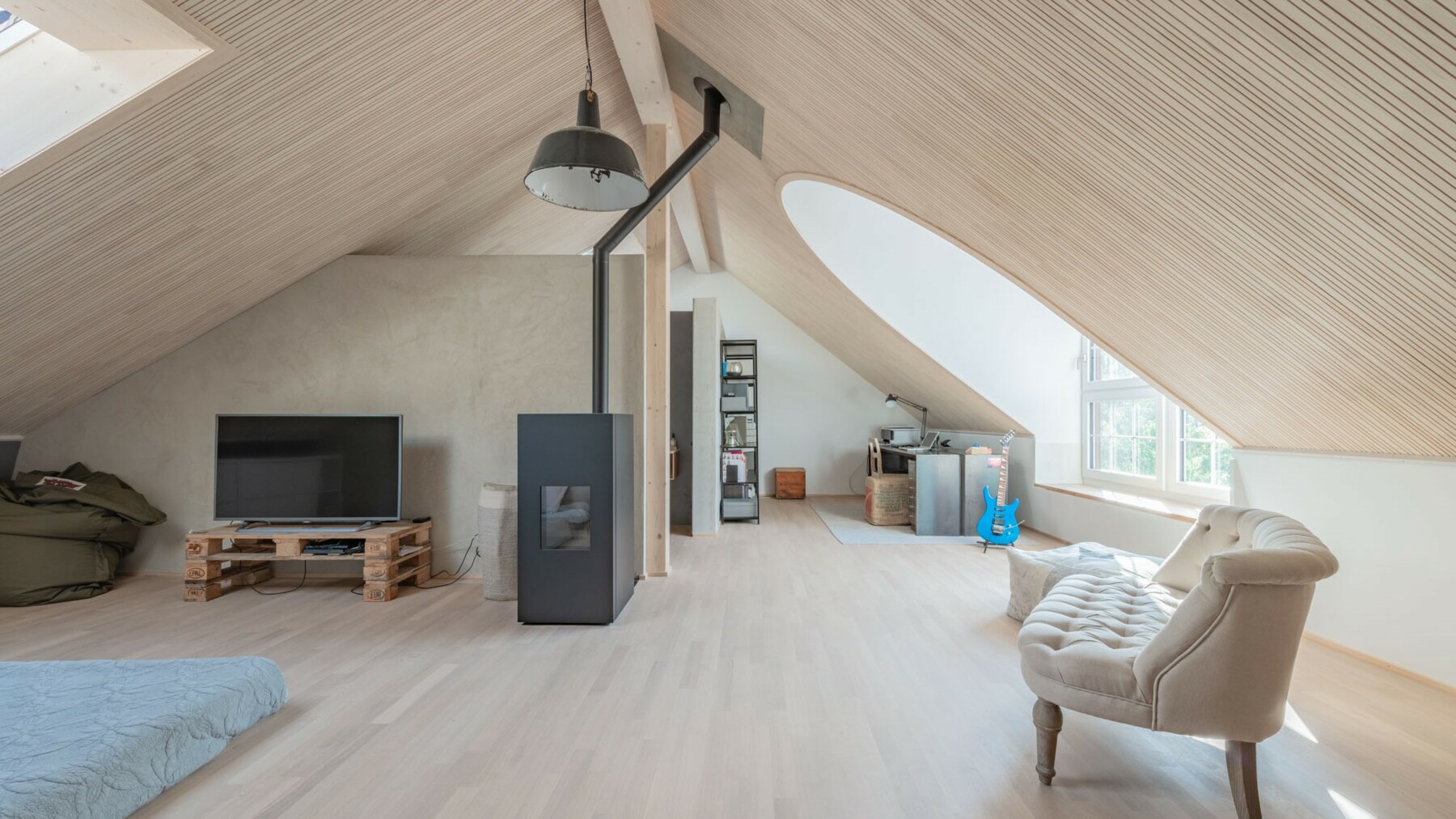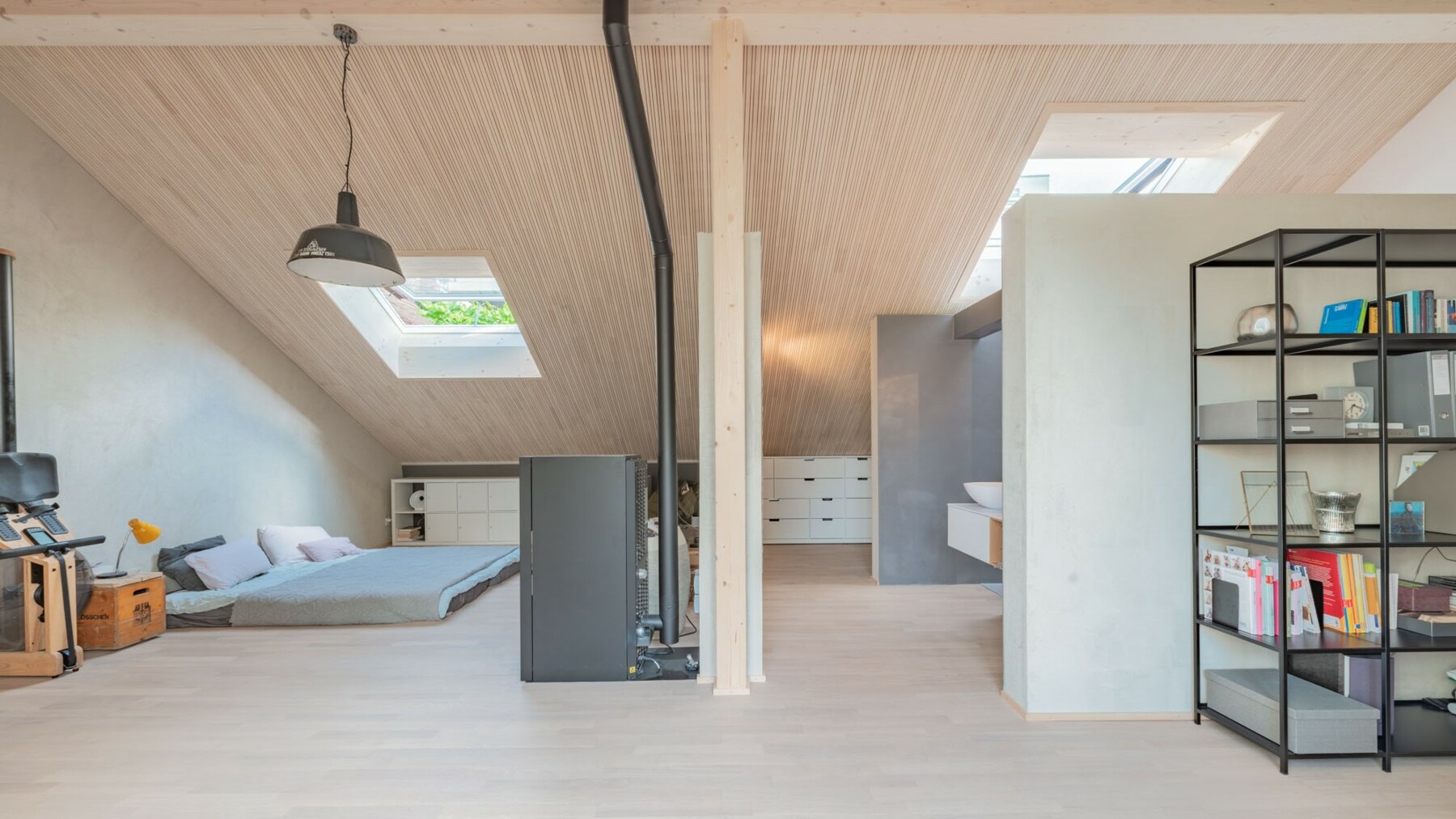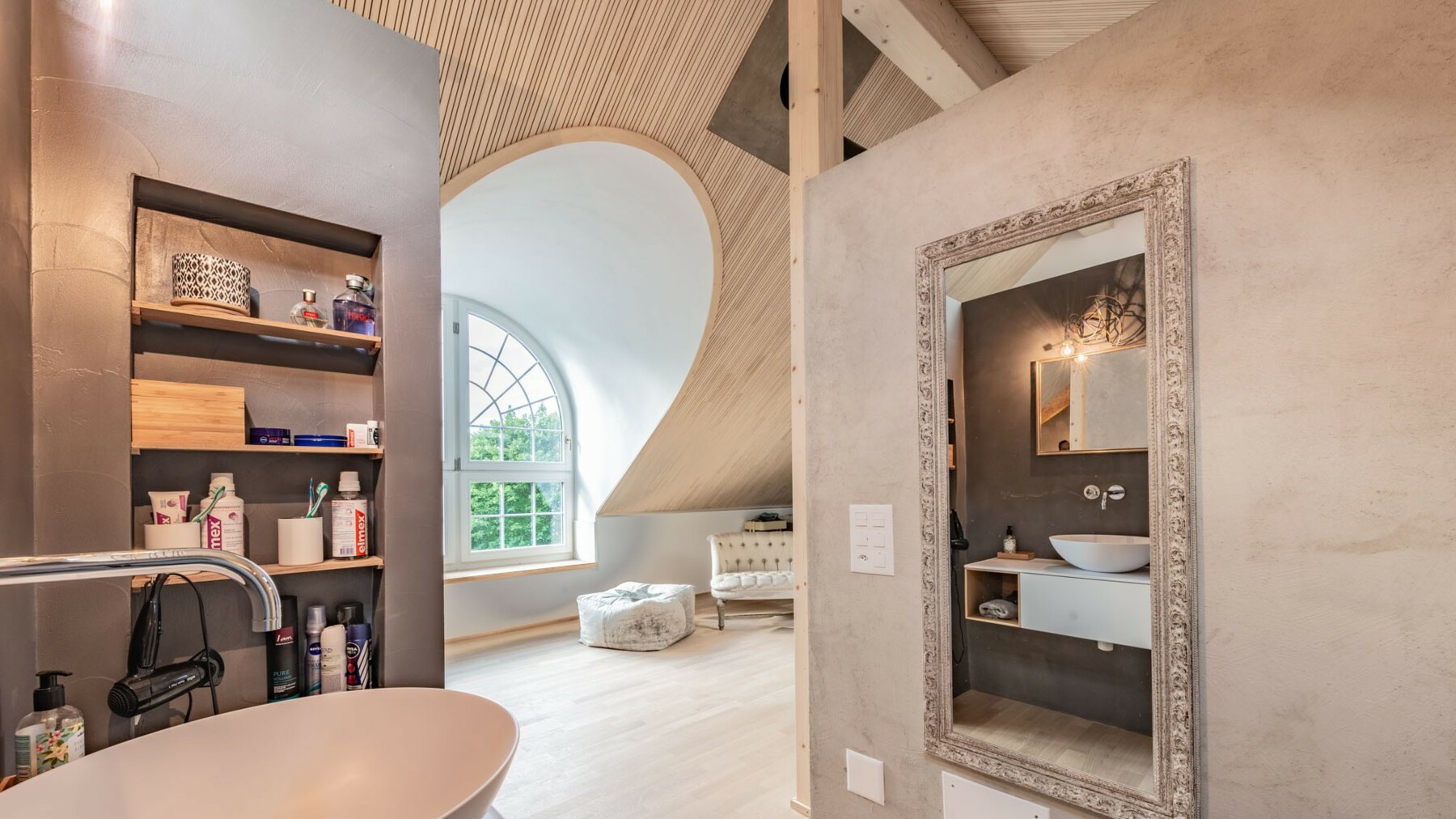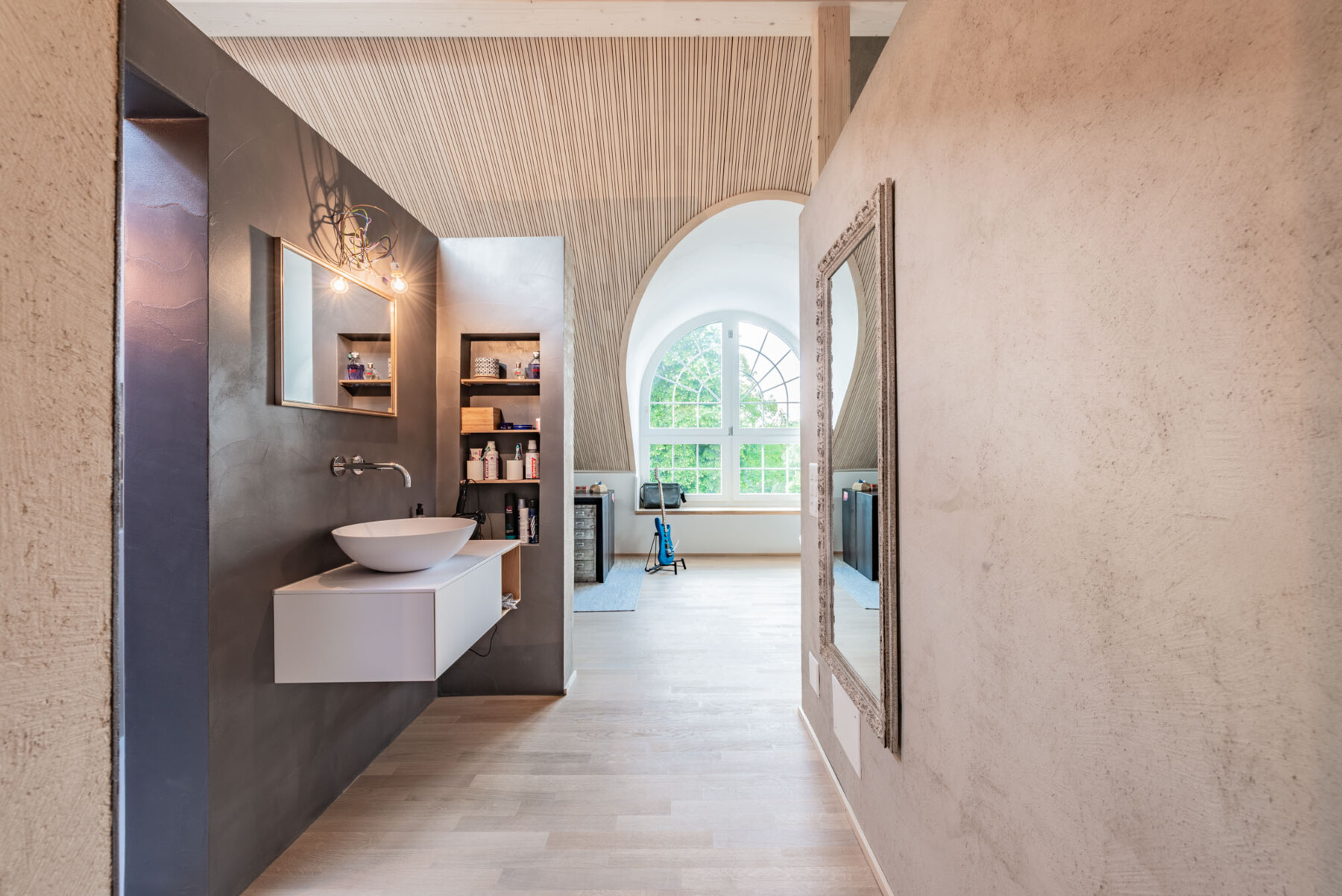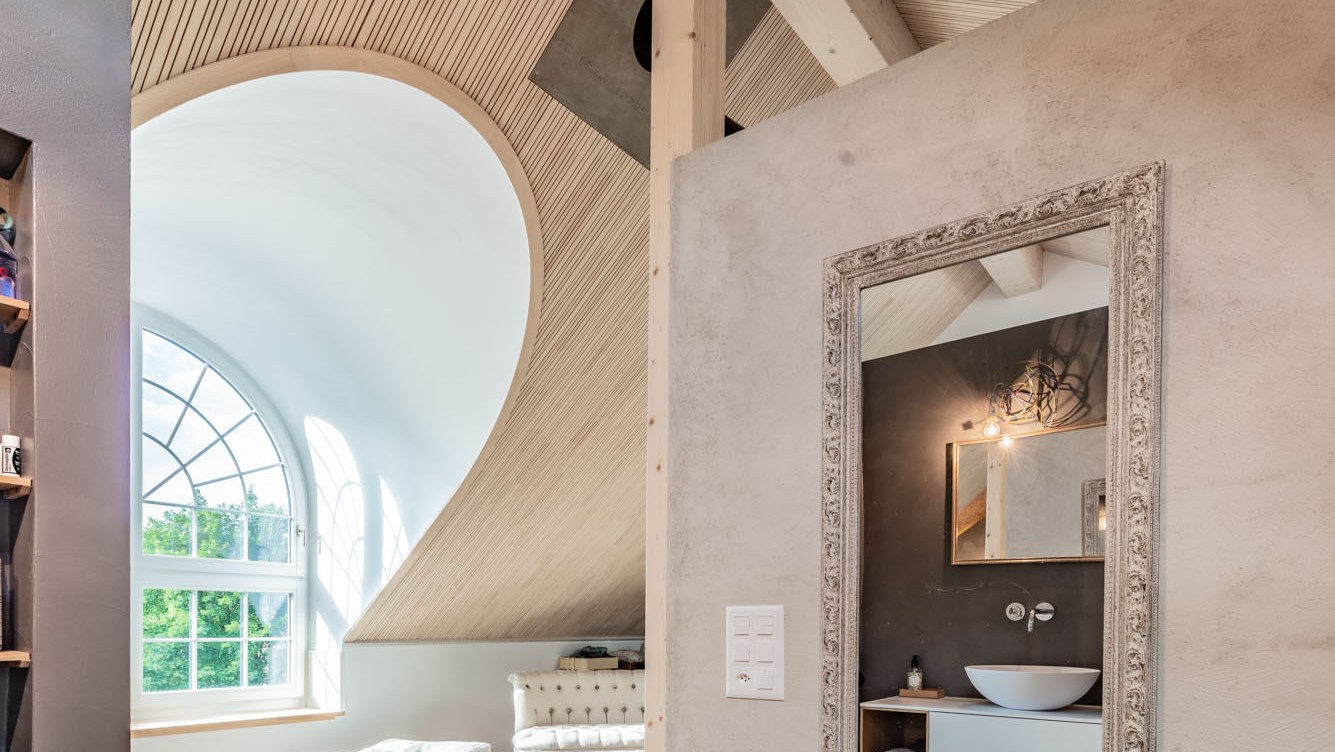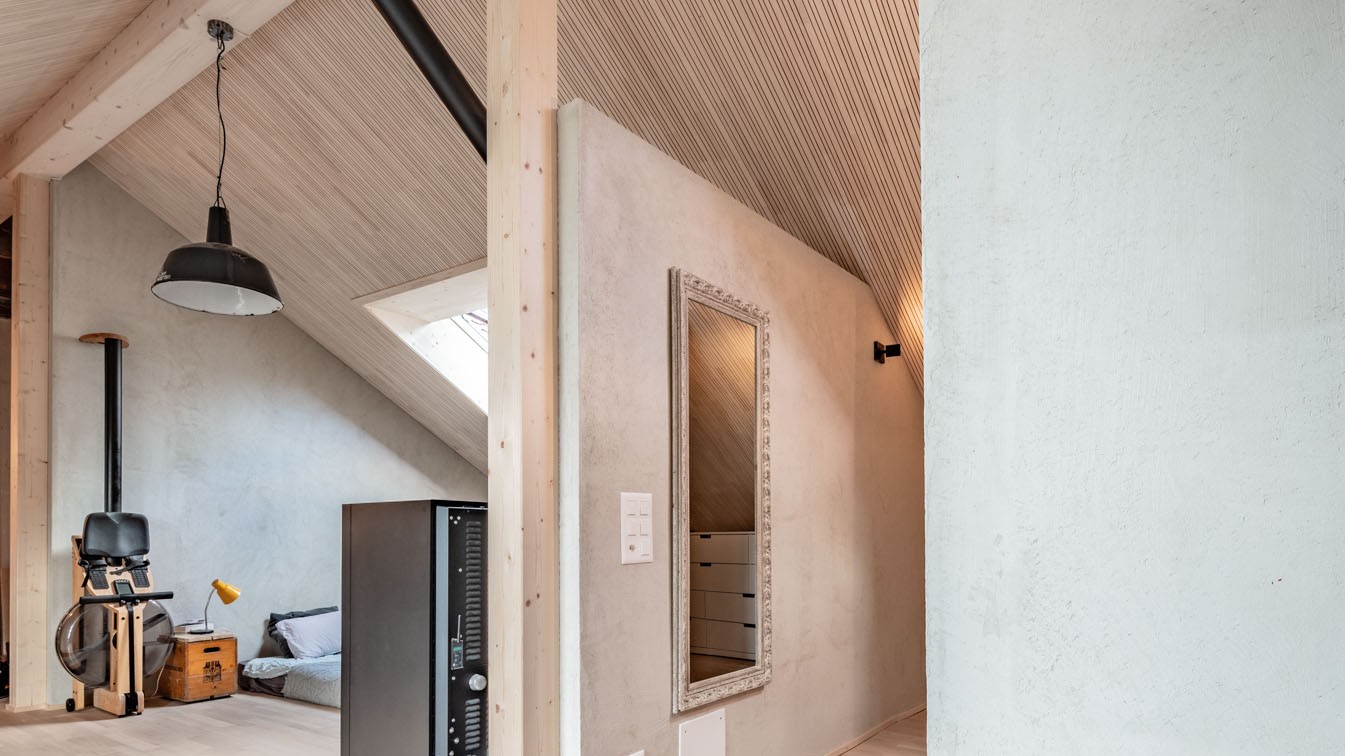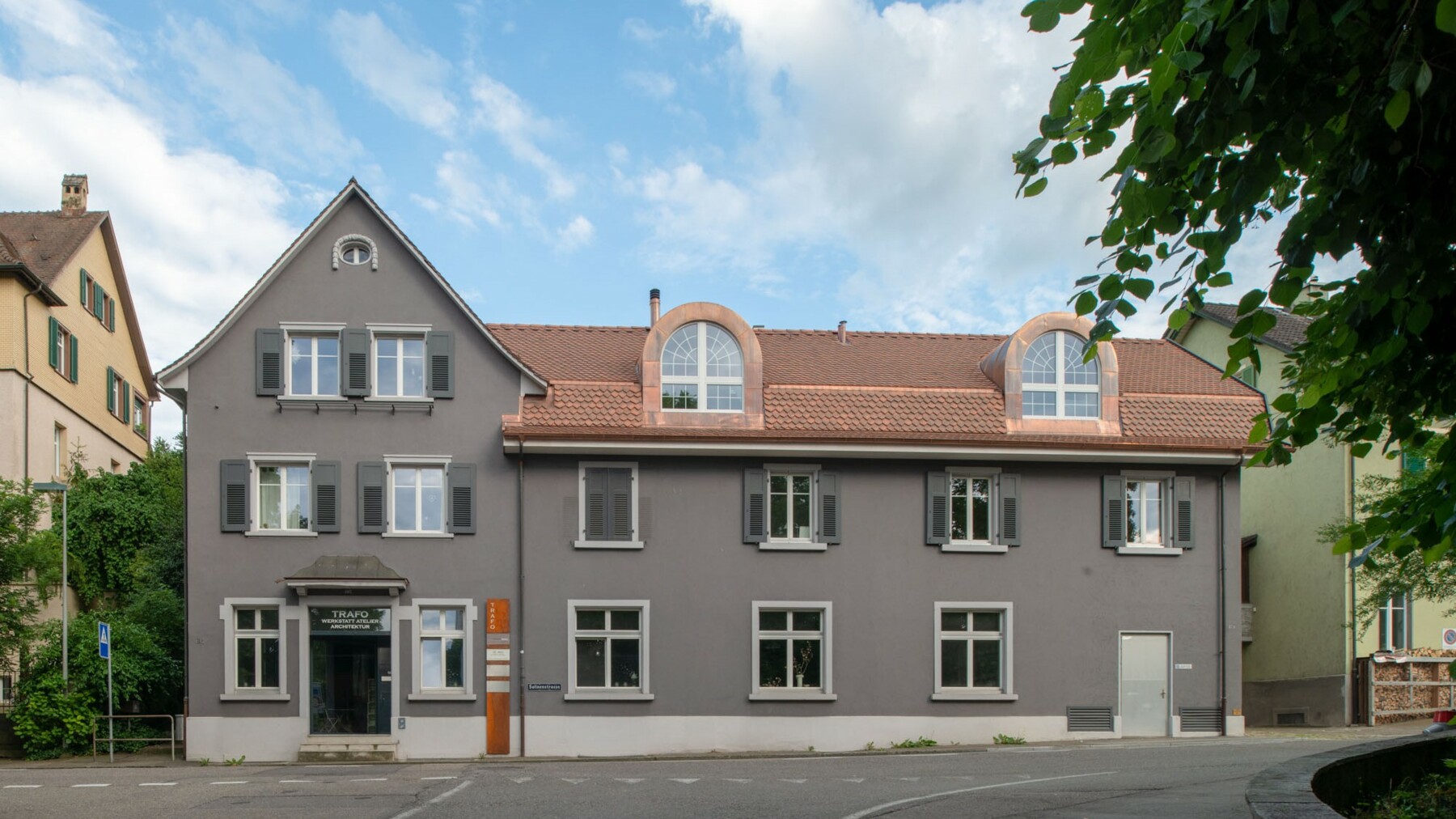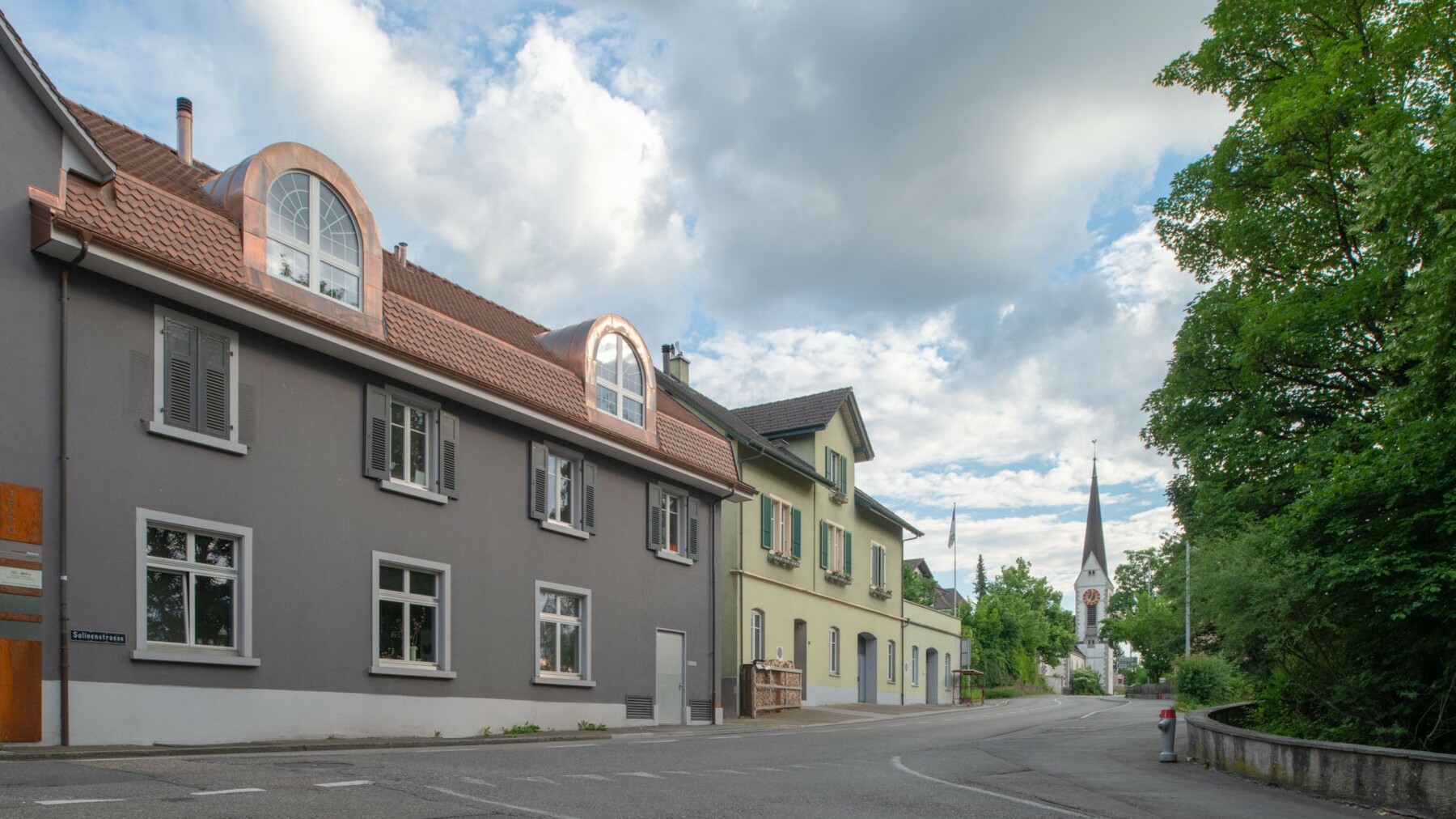Raising the roof of an apartment building
On top instead of next door
In Rheinfelden near Basel, the gable roof of a town house was demolished in favour of a mansard roof. The princess post was raised by about one metre and the roof was completely rebuilt. This made it possible to gain valuable living space, which was very generously designed in the style of a residential lofts: Kitchen and bathroom are only limited by half-height wall panels.
Configuration overview
Components used
![|]()
LIGNO® Block Q | Roof component
Product code: LIGNO® Block Q_70-150_rg0_s0_z0_p0_a0_625-12n25-4_WTE_gb_buvInstallation top
Whether the element is open or closed at the top is determined by the area of application. If, for example, the element is to be filled with fill on site as a storey ceiling or roof terrace (LIGNO® Rippe Q3-x), its cavities are open at the top (feature _r0). To guide pipes at the top of the element, a cross grid (_r25, _r50) can be added to some superstructures. For roof superstructures, there is usually a flat closed finish _rg0 (LIGNO® Block Q-x, LIGNO® Block Q3-x or corresponding versions of LIGNO® Acoustic classic).

Installation top
_rg0 Closed, without cross grid
Statics
The height of the load-bearing webs of the element is variable and determined according to static requirements from load and span. Within the framework of this configurator, the selection is limited to four height ranges. A more precise definition is made later during pre-dimensioning or verification with the LTB-x calculation programme. Bulk volume and/or necessary space for installations can also be decisive for the height.

Statics
_70-150 Low span
Fire resistance
If fire protection is required, an additional layer is added below the web area (for elements with strip profiles _z26, _z53, _z80, for elements with board profiles Akustik klassik _k50g). Their height determines the fire resistance duration of the cross-section from 30 to 90 minutes. The fire resistance must be statically verified. If there are no requirements, the standard versions _z0 or _k50l are to be selected.

Fire resistance
_z0 R0
Cavity
Panel designs with strip profiles and additional layer can be configured with an additional cavity (_p26, _p53) below the additional layer for installation routing, fixtures or to improve sound absorption.Cables laid there then do not penetrate the fire-protective layer. If required, the cavity is filled with insulating material (_p26mw, _p26ha) to improve acoustic absorption. If no cavity is necessary, the characteristic _p0 is selected.

Cavity
_p0 No cavity
Room acoustics
If the soffit of the element is to have a good sound-absorbing effect, the penultimate layer is configured as absorber _a50g. Otherwise, this layer is configured as a solid wood layer _a0.

Room acoustics
_a0 Without absorber
Profile
The visible layer is profiled with joints. The code for profiling indicates in millimetres: Element width, strip width (rounded, from/to if applicable) and joint width (rounded) as well as a letter identification for variants, e.g. with chamfered strip edges or with additional height gradation.
Note: Some profiles indirectly cause exclusions for other configuration options.

Profile
_625-12n25-4 Slat profile "nature"
Wood type
Various wood species are available for the visible layer. For quality reasons, individual wood species cannot be configured for all profiles; for technical reasons, surface treatments are excluded for some wood species.

Wood type
_WTE Silver fir, economy
Structure
The face is subjected to a brushing _gb as standard, which produces a stronger or weaker structure depending on the type of wood and makes the surface less sensitive to scratches. Alternatively, a smooth sanding _gs can be carried out, or on request a bandsaw cut _grimitated.

Structure
_gb Brushed
Treatment
Depending on the type of wood, the optional application of a surface treatment is possible ex works. Individual colour finishes are always sampled for coordination. For elements in individual lengths, colour treatment is limited to max. 5 m length.

Treatment
_buv UV-protection stain
Reference-related
Downloads
Project participants

David Peter
CH - Rheinfelden

az Holz AG
Oristalstrasse 121
CH - 4410 Liestal

Fotografie Uwe Röder
Related references
Roof conversion in Stuttgart
With the two-storey extension of a house that stands in the second row on Stuttgart's Olgastrasse, g2o Architekten...
70182 Stuttgart
ViewApartment house in Hofmatt
Wood holds its own: fire protection, sound insulation, earthquake resistance - modern wooden buildings made of LIGNO®...
4417 CH-Ziefen
View
